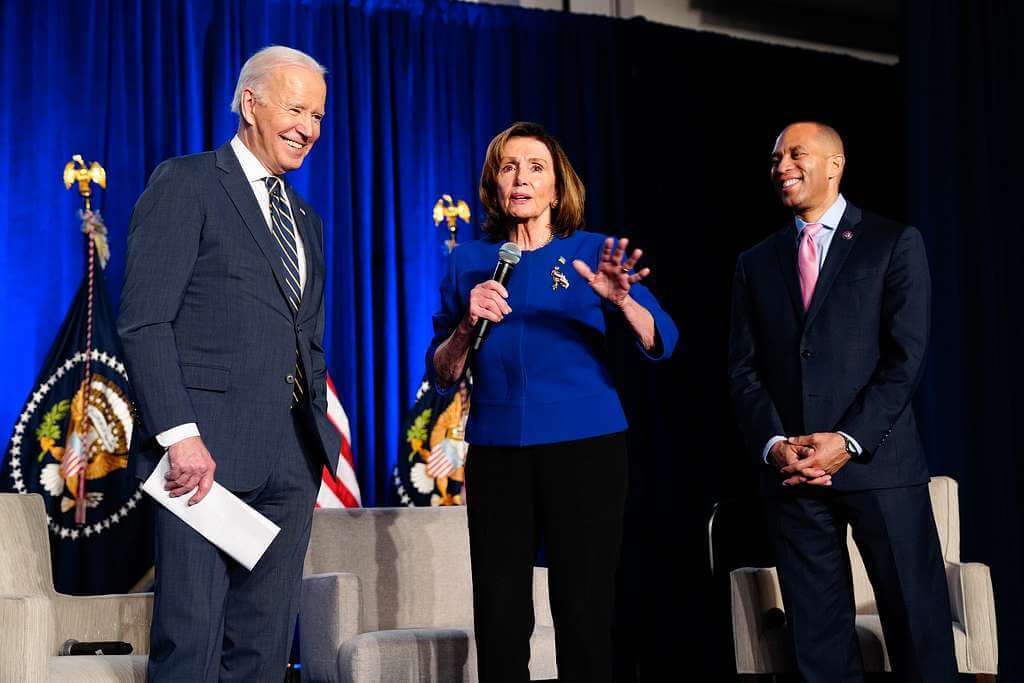It helps in this regard that the American liberal understands very little about politics outside an American-centric frame. He has barely even learnt to question the framing narratives of mainstream U.S. news media. He disapproves of white supremacy at home but is rarely as troubled by the expressly articulated Jewish-supremacist project of the Israeli far right. Instead, he naively takes the Israeli government at its word and pardons its open embrace of genocide as intemperate statements born of grief. He purports to stand against border walls, state surveillance, and militarized policing but turns his gaze away when these forces are weaponized against Palestinians. He complains about the power of dark money but doesn’t challenge the political lobbies that advocate for Israeli state interests in the highest echelons of power. He proudly supports human rights but won’t acknowledge years of reporting by human rights organizations on atrocities perpetrated by the Israeli military. He proclaims that Black lives matter but admonishes radical Black writers, intellectuals, and activists who rally for Palestinian freedom. He solemnly agrees that an irreparable harm was done to Native Americans during the European conquest of the “New World,” but cannot fathom why they — and people from across the postcolonial world — recognize their own history in the Palestinian experience.
Perhaps this is not surprising, for the American liberal is only recently and haltingly educated about the entrenched history of structural racism and white supremacy in the U.S., so he inevitably finds it difficult to apply the lessons of that history to the world around him. He fashions himself a hero who would have stood against Jim Crow, Japanese internment, the Vietnam War, and South African apartheid in their time, but somehow the “Israeli-Palestinian conflict” appears too “complicated” to take a moral stand. In his mind, American democracy is an inexorably self-perfecting experiment, even though the institution was founded on genocide, slavery, and apartheid and is incessantly subject to anti-democratic capture today. Indeed, the liberal believes so wholeheartedly in this received concept of democracy that he invariably fails to apprehend how democracy can be democratically suppressed in ethno-majoritarian societies, and doesn’t ask himself whether any country can truly call itself democratic — let alone the “only democracy in the Middle East” — if a significant proportion of its population cannot participate in the democratic process. But then, perhaps he is reassured by the knowledge that democracy eventually comes to those who demonstrate their worthiness by dying in large enough numbers. After all, isn’t that why the Western powers “gifted” Israel to Jewish survivors of the Holocaust, so that Palestinians could pay for the West’s guilt?
. . .
But let us not despair. Progress has never relied on a liberal’s courage to recognize that change is necessary. Progress occurs when enough people are moved to reject not only neofascist populism, but liberalism’s racist hypocrisies masquerading as humanism. And there are millions of such people marching for Palestine all over the world. Ultimately, the American liberal will be transcended by his own irrelevance. Palestinians have no need of his allyship; they will secure their own freedom and future. When that day eventually arrives, we can look forward to the liberal’s revisionist memory that he was on the right side of history all along.



The last sentence of this article is spot on.
People who supported every escalation in the War on Terror: "Everyone knows the Iraq War was a bad idea."